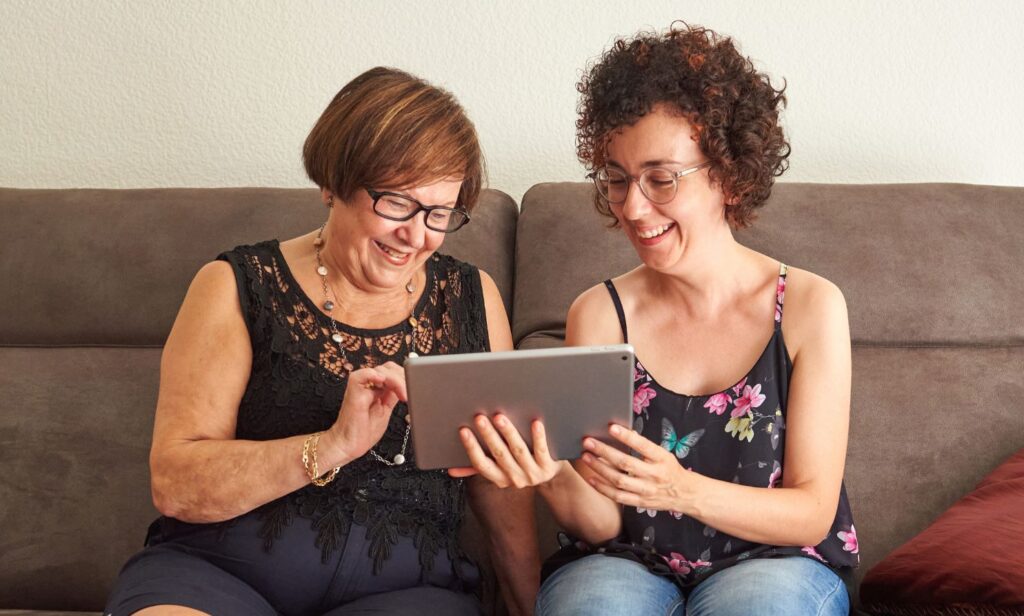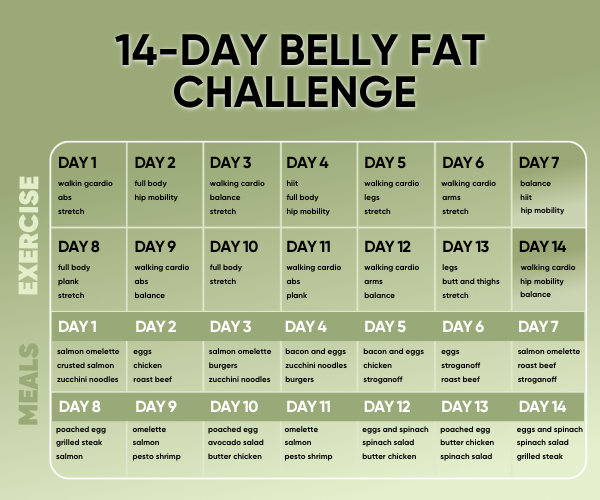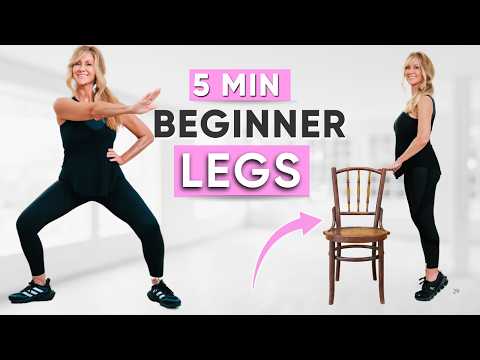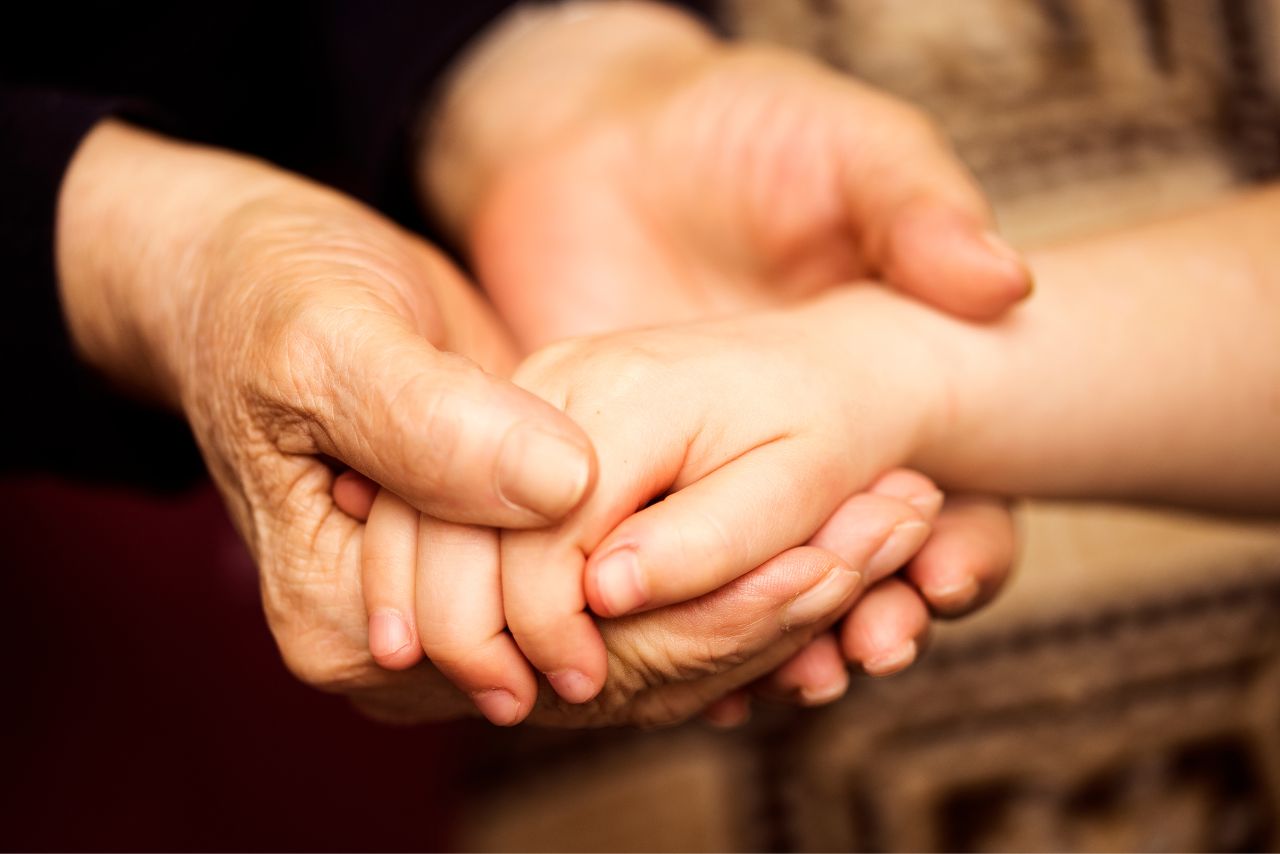
According to studies, people who age gracefully and live long lives typically have a strong sense of community. This fact is exemplified in the Blue Zones, regions around the world where people tend to live past the age of 100. The question then is: how can we make our lives more community-based so that we can age well?
Many of us grapple with feelings of loneliness and isolation, making it a pressing issue. But keep in mind that you are not the only one going through this. Many adults are in the same boat as you—they want meaningful friendships but do not know how to make them. In our fast-paced, tech-driven society, where virtual interactions often take the place of face-to-face ones, this is especially true. The challenge now is to figure out how to get around in this new world and connect with real people.
That’s why I sat down with Heather, a social engineer and expert in forging friendships, to discuss how we can establish connections and foster a sense of community when it seems challenging. Heather has even collaborated with the United Nations to teach the principles of friendship.
She shares with us seven valuable tips for creating friendships and building a sense of community, especially as you enter your 50s and beyond. Let’s take a look at them!
How To Overcome Loneliness And Make Friends As An Adult | The SECRET To Longevity!
Tip 1: Make Friends With Yourself
Heather emphasizes being friends with yourself first. It’s about defining the type of friend you want to have and, consequently, the kind of friend you want to be.
First, build a strong relationship with yourself before making new friends. Adult friendships are easier when you know yourself, your interests, and your values. Your best friend is yourself, and accepting yourself is a key part of making real connections with other people.
Taking care of yourself is part of being friends with yourself. Put your physical and mental health first, do things you enjoy, and give yourself time to think about how you feel and what you think. You will feel better and more confident, making you more attractive to potential friends.
To become friends with yourself, start by identifying your own interests and hobbies. List the activities you genuinely enjoy. Once you’ve identified your interests, consider the qualities you desire in a friend. Honest communication about response times is crucial.
Remember, people are drawn to individuals who exude positivity and self-assurance. You can attract like-minded people and form meaningful friendships by taking care of yourself and accepting who you are.
Tip 2. Communicate Your Boundaries With One Another
Open and honest communication is the cornerstone of any strong friendship. As adults, we have our own set of responsibilities, priorities, and boundaries that need to be respected. When making friends as an adult, it’s crucial to communicate these boundaries to ensure a healthy and balanced friendship.
Start by being open about your expectations in a friendship. This could be about the amount of time you can dedicate, the activities you are comfortable with, or any other personal boundaries you may have. Remember, it’s okay to say no and to prioritize your needs.
Additionally, respect the boundaries of others. Learn to respect the fact that they also have responsibilities and commitments. If you are patient, open-minded, and understanding, the people who might become your friends will appreciate that you respect their space.
Tip 3. Finding the Right People to Connect With

According to Heather, you should put yourself in a situation where you will meet people with similar interests. Finding the right people to connect with is all about revisiting your list of hobbies and interests and identifying where in your community these activities are taking place. A quick online search can help you discover local groups and events.
Another effective way to make friends as an adult is to engage in activities that you enjoy. This puts you in a position to meet people who share similar interests. Whether it’s joining a book club, a fitness class, or volunteering for a cause close to your heart, these gatherings provide the perfect platform to initiate conversations and form connections.
One great way to meet people with similar interests and make new friends and connections is to check out meetup.com, which Heather suggested.
Take the initiative to strike up conversations, ask questions, and show genuine interest in others. Remember, friendships don’t form overnight. Be consistent in your efforts, be patient, and give the friendship time to blossom.
You could also join online groups that share your interests. The digital world gives us a lot of chances to connect with people around the world who share our interests. Not only does this make your social circle bigger, but it also opens you up to new ideas and experiences.
READ ALSO: 10 Ways Women Over 50 Can Practice Self-Love in Everyday Life
Tip 4. Do a Random Act of Kindness
Heather encourages the idea that friendships don’t always have to be long-term commitments. Some connections may be fleeting, like a pleasant encounter with someone on a bus, yet they can still brighten your day and be considered micro-friendships. Compliments and acts of kindness are simple yet powerful ways to brighten someone’s day.
Kindness is a universal language that can bridge the gap between strangers and turn them into friends. Performing a random act of kindness can create a positive impression and lay the groundwork for a potential friendship. This could be as simple as helping someone carry their groceries, offering a compliment, or lending a listening ear to someone who needs it.
Remember, genuine kindness comes from a place of empathy and compassion, not from the expectation of getting something in return. People appreciate authenticity and are more likely to form a connection with people who show genuine kindness.
So, don’t hesitate to extend a helping hand or share a smile. These simple acts of kindness can go a long way toward making friends as adults.
Tip 5. Know That You Are Not Alone

If you’re feeling lonely or find it difficult to make friends as an adult, remember that you’re not alone. Many adults face the same challenge. Knowing it is a common struggle can calm your fears and motivate you to make new friends.
Try joining support groups or forums where adults share their friendship tips. These platforms can give you guidance, motivate you, and reduce your isolation.
Remember, it’s okay to feel vulnerable and seek assistance. Acknowledging your emotions and reaching out for support is a sign of strength, not weakness.
Tip 6. Find a Quiet Place to Integrate With Your New Environment
When you’re in a new environment, whether it’s a new city, job, or community, it’s important to take the time to integrate and understand the dynamics of your surroundings. Finding a quiet place where you can observe and reflect can help you feel more comfortable and confident in your new environment.
This could be a local park, a café, or even your own living space. Use this time to understand your feelings, observe the people around you, and strategize your approach towards making new friends.
Remember, it’s okay to take things slow. Making friends as an adult is a journey, not a race. Taking the time to integrate with your new environment can make this journey smoother and more enjoyable.
READ ALSO: 10 Ways Women Over 50 Can Live A More Interesting Life
Tip 7. Trust That You Have Everything You Need Right Now to Succeed
Trust in your abilities and believe that you have everything you need to succeed in making friends as an adult. This includes your unique personality, your experiences, and your willingness to form new connections.
Don’t let self-doubt or fear of rejection hold you back. Every interaction, whether successful or not, is a learning experience that brings you one step closer to your goal.
Remember, making friends as an adult might be challenging, but it’s not impossible. Forming life-enriching friendships takes patience, perseverance, and the right strategies.
Why is Making Friends as an Adult Important?

There’s a growing body of scientific research that explores the dynamics of loneliness and friendship in adulthood. Studies show that loneliness isn’t just a feeling; it’s a biological signal, much like hunger or thirst. It tells us that we need social interaction, just as hunger tells us we need food. In other words, loneliness is a natural human response to social isolation.
On the other hand, friendship has been shown to have a host of physiological and psychological benefits. For instance, the Harvard Study of Adult Development, one of the longest-running studies on adult life, has found that close relationships, more than money or fame, are what keep people happy and healthy throughout their lives. These relationships don’t just protect our bodies; they protect our brains too.
This can help you realize your friendship desire is not frivolous. It’s a fundamental part of being human. Being aware of this can help adults make friends and overcome loneliness.
Friendship is crucial in adulthood. Friendships offer emotional support, which is vital to mental health. Having friends to talk to and lean on during stress can be greatly beneficial. They can offer perspective, comfort, and guidance through life’s ups and downs. In many other ways, friendships enrich our lives. They foster belonging, self-esteem, and fun and relaxation.
Friendships also affect our physical health greatly. Research shows that strong social relationships boost the immune system, lower heart disease risk, and extend lifespans. However, loneliness and social isolation can harm our health, like smoking and obesity.
READ MORE: Dealing With Isolation And Loneliness
Practical Activities for Making New Friends
So, how do you go about making friends as an adult? Here are some practical activities you can try:
Join a club or group related to your interests. This could be a book club, a hiking group, or a cooking class. The shared interest will give you common ground and something to talk about.
Volunteer for a cause you care about. Not only will this give you a chance to meet like-minded individuals, but it will also give you the satisfaction of contributing to your community.
Attend social events and gatherings, even if it feels out of your comfort zone. You never know who you might meet.
Take advantage of networking opportunities in your professional life. Attend conferences, seminars, and workshops in your field.
Be open to new experiences. Say yes to invitations and opportunities that come your way.
Remember, making friends is a process. It takes time and patience. Don’t be disheartened if things don’t happen instantly.
The Role of Social Media and Technology in Making Friends

In today’s digital age, technology and social media play a significant role in our social lives. They offer new avenues for meeting people and staying in touch with friends. Websites and apps like Meetup, Bumble BFF, and Nextdoor can help you connect with people in your area who share your interests or circumstances.
Social media platforms like Facebook, Instagram, and Twitter can help you keep up with your friends’ lives and interact with them on a regular basis. They can also help you rekindle old friendships and maintain long-distance ones.
However, it’s crucial to remember that online interactions should complement, not replace, face-to-face ones. While technology can facilitate connections, genuine friendships are built through shared experiences, emotional support, and mutual understanding, which are best fostered in person.
Closing Thoughts
As an adult, making friends is a fun and rewarding experience that you should not miss. When you make new friends, you gain new experiences, perspectives, and connections. It helps you grow and enriches your life unexpectedly. With maturity, adult friendships gain depth and understanding.
Regardless of your age, it’s never too late to forge new bonds of friendship. So, take the first step today. Reach out to someone new, join a club or group, or simply say yes to a social invitation.
Every journey starts with a single step, and every friendship starts with a single interaction.
Be brave, be patient, and be open to the wonderful possibilities of friendship.
♡ Love ♡,
Schellea




















